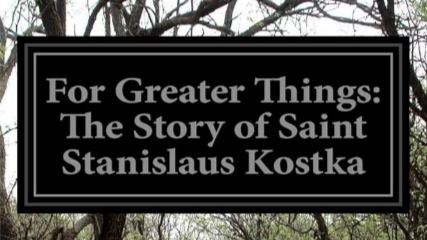Chapter III-For Greater Things
byChapter III – For Greater Things begins with the storm left behind by Stanislaus Kostka’s sudden departure to follow his religious calling. His brother Paul and their tutor Bilinski, caught off guard and fearful of the consequences, stumble upon a letter left behind by Stanislaus. In it, he calmly explains that he must obey the voice of God rather than the expectations of man. This simple yet powerful message is passed on to Lord John Kostka, their father, along with letters from those involved in the failed attempt to find and retrieve the young runaway. The responses are meant to ease the blow, but they do little to soften the anger of a father who feels betrayed. Lord John, deeply wounded and humiliated, erupts with fury, vowing to bring Stanislaus back by force. His threats aren’t merely emotional; they reflect a nobleman’s pride, compounded by love and grief over a son he cannot understand.
This chapter paints a picture of Stanislaus not as a saint unbothered by struggle, but as a young man who fought hard against the temptations that surround every adolescent. Even in his earlier years, Stanislaus was tested, often in the company of peers and servants whose behavior reflected the coarser side of noble life. He refused to participate in crude language or behavior, not out of arrogance, but out of an inner compass grounded in reverence. These early trials, though less dramatic than his later flight, reveal a young man already building the virtues that would define his sanctity. He did not live in a bubble of virtue—his choices were made in real conflict with his environment, in resistance to easy indulgence. His strength lay not in isolation, but in active resistance. It is this resistance, not perfection, that makes his path relatable and compelling.
The deeper message of the chapter lies in its challenge to the reader’s understanding of holiness. Stanislaus’s sanctity did not stem from a smooth life or an easy temperament; it was forged in moments of conflict, self-denial, and prayerful clarity. He chose silence over argument, gentleness over pride, and obedience to God over comfort and family favor. These decisions came at a cost—he risked his family’s approval, his social standing, and even physical safety. And yet, in choosing God’s voice over all others, he found a peace no worldly reward could provide. His journey reminds us that sanctity is not passive; it is born from conscious decisions, repeated daily, to choose virtue in the face of pressure.
Through this lens, Stanislaus becomes more than a historical figure—he becomes a mirror reflecting our own moral choices. The struggle he endured between loyalty to family and obedience to a higher call is not unique to his time. Many people, especially the young, face similar tensions today. What Stanislaus shows us is that true freedom is not the absence of limits, but the courage to follow what is right, even when the path is lonely. His father’s reaction, though harsh, is not painted with contempt. Rather, it reflects the deep pain and misunderstanding that often arise when spiritual callings challenge familial expectations. Yet in time, even Lord John’s heart would soften, showing that divine grace can mend even the deepest wounds.
Ultimately, the chapter is not about rebellion but about resolve. It tells the story of a boy who, in the face of disappointment and fury, stayed true to a calling that few understood. He embraced the loneliness of his path, not with bitterness, but with trust in something greater. That trust—tested by trials both internal and external—is what lifted his choices from mere conviction to acts of sanctity. Readers are left with a sense that holiness, far from being distant or unattainable, begins in the choices of each day—often unnoticed, often misunderstood, but always powerful when made in love. Through Stanislaus’s courage and clarity, we’re reminded that greatness begins not in noise or power, but in the quiet strength to say yes to God, no matter the cost.

